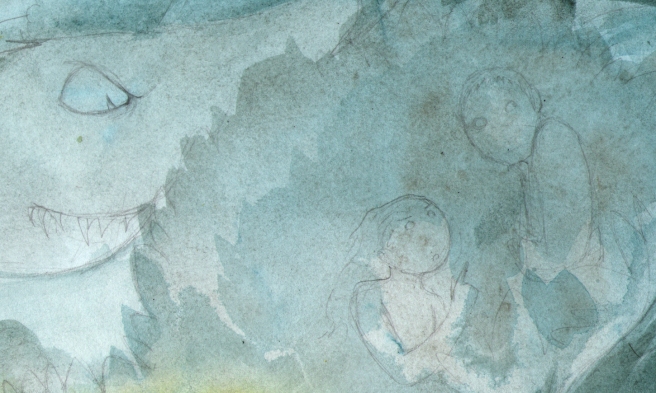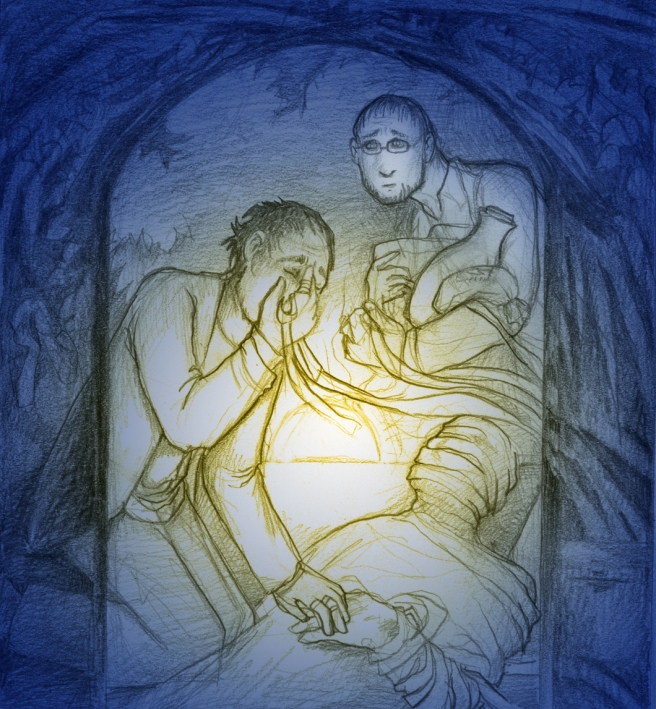
It’s probably not surprising that I feel a lot of sympathy and compassion for Thomas, being labeled as the non-believer and hard headed disciple by critics and commentators everywhere. I think Jesus loved Thomas and had compassion for his traumatized state. He may have criticized his non belief, but I’d like to think the moment ended in a hug.
I wanted to capture the idea that in this moment of connection Thomas is able to look back with new clarity and understanding on the events that happened up to this point. Meanwhile, Jesus looks forward toward future people who will find their way to belief without visual evidence.
Here’s the actual verses:
Now Thomas, one of the Twelve, called the Twin, was not with them when Jesus came. So the other disciples told him, “We have seen the Lord.” But he said to them,“Unless I see in his hands the mark of the nails, and place my finger into the mark of the nails, and place my hand into his side, I will never believe.”
Eight days later, his disciples were inside again, and Thomas was with them. Although the doors were locked, Jesus came and stood among them and said, “Peace be with you.” Then he said to Thomas, “Put your finger here, and see my hands; and put out your hand, and place it in my side. Do not disbelieve, but believe.” Thomas answered him, “My Lord and my God!” Jesus said to him, “Have you believed because you have seen me? Blessed are those who have not seen and yet have believed.”













